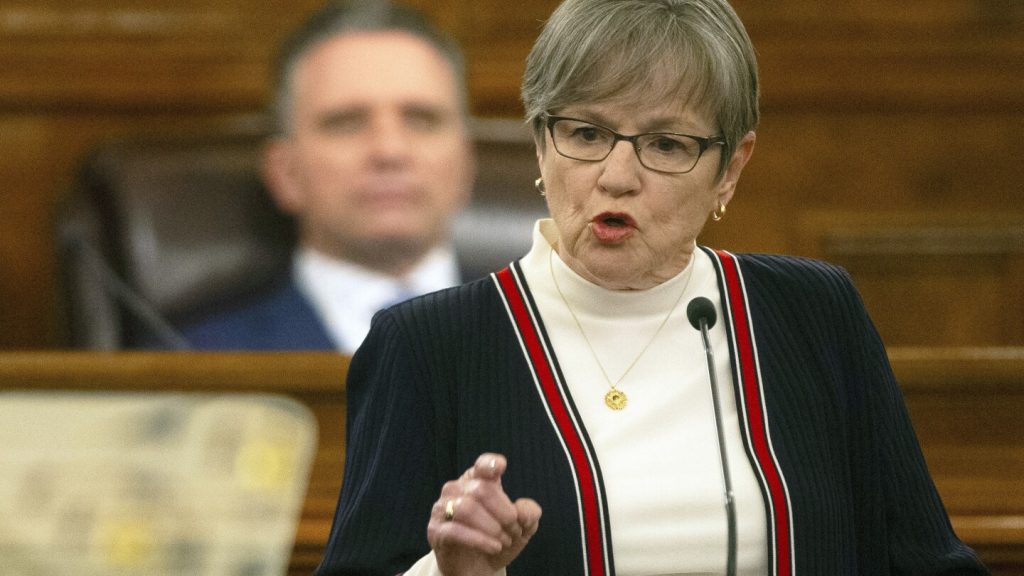Kansas Democratic Governor Laura Kelly has vetoed a $1.5 billion tax cut package for the second time in three months, citing concerns about the expenses and the state’s future fiscal stability. The package included cuts to income, sales, and property taxes, which Kelly believed were too costly in the long term. The governor’s veto message highlighted her commitment to ensuring that the wealthy pay their fair share of taxes, as the plan would have moved Kansas from three personal income tax rates to two.
The vetoed bill would have also eliminated income taxes on Social Security benefits for retirees earning $75,000 a year, reduced property taxes for public schools, and ended a 2% sales tax on groceries six months early. It aimed to lower the state’s highest personal income tax rate from 5.7% to 5.55% by moving to two tax rates. In response, Kelly immediately proposed her own tax cuts worth approximately $1.3 billion over the next three years, which included similar provisions but maintained all three personal income tax rates with a lower highest rate at 5.65%.
Republican legislators in Kansas have been pushing to transition the state to a single personal income tax rate, as other GOP-led states have done recently. However, disputes between Governor Kelly and Republicans over tax policies have prevented significant tax cuts from being enacted, despite surplus funds in the state’s coffers. In January, Kelly vetoed a $1.6 billion tax cut plan that aimed to move the state to a single-rate personal income tax, which Democrats largely opposed. The ongoing disagreement over tax relief measures has stalled progress in the Kansas Legislature.
Governor Kelly’s decision to veto the tax cut package has sparked both support and criticism from lawmakers. While Democrats in the Senate largely opposed the bill for the same reasons as Kelly, House Democrats were split in their opinions. Kelly’s new tax cut proposal faces skepticism from Republicans, with some doubting whether it will be embraced by the legislature. The debate over tax policies in Kansas reflects broader disagreements between governors and lawmakers in other states, such as neighboring Nebraska, where similar tax relief plans have faced challenges.
Despite a stable fiscal outlook through mid-2025, projections suggest that Kansas could amass a significant surplus by the end of that period, even with additional spending and tax cuts. Kelly argues that potential financial problems could arise in the future, prompting her to prioritize long-term fiscal stability over immediate tax relief measures. The legacy of former Governor Sam Brownback’s tax policies still looms large in Kansas politics, with Kelly emphasizing the need to avoid past budget shortfalls caused by large income tax cuts. However, Republicans argue that surplus revenues and changing economic conditions necessitate a new approach to tax policy in the state.
In conclusion, the ongoing debate over tax cuts in Kansas reflects broader ideological divisions between Governor Kelly and Republican lawmakers over the state’s fiscal priorities. While Kelly’s veto of the tax cut package underscores her concerns about long-term financial stability, Republicans are pushing for more aggressive tax relief measures. The clash between the two parties highlights the challenges of reaching bipartisan consensus on tax policies, particularly as the state grapples with surplus funds and potential economic uncertainties. As the Legislature reconvenes to address the governor’s veto and proposed tax cuts, the future of Kansas’ tax policy remains uncertain.


